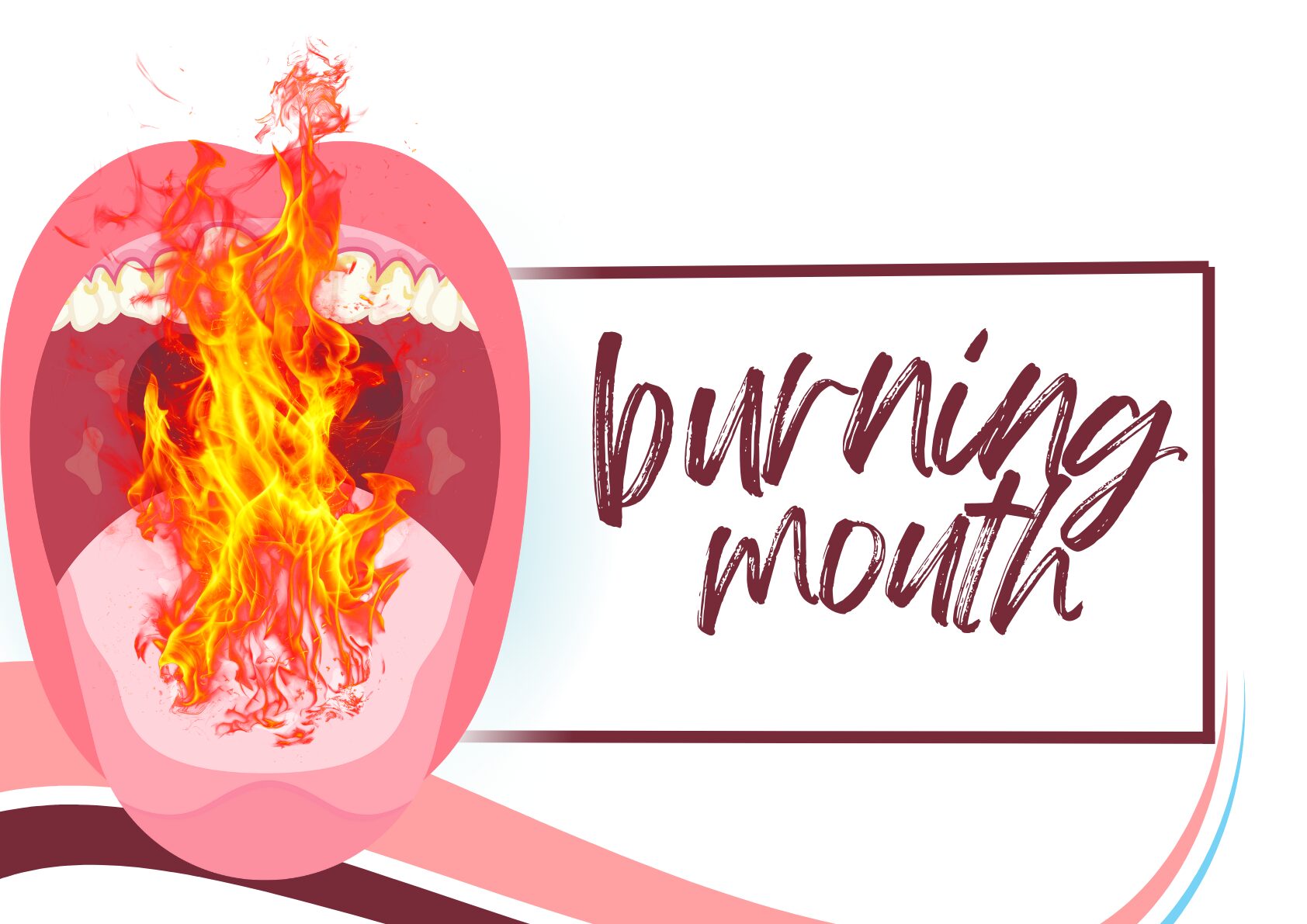Burning Mouth Syndrome (BMS) is a painful condition characterized by a burning, scalding, or tingling sensation in the mouth. This sensation often occurs daily and can persist for months or even years.
The discomfort can significantly impact one’s quality of life, making everyday activities like eating and speaking challenging. It is crucial to recognize the symptoms and seek appropriate medical advice for diagnosis and treatment.
Symptoms of Burning Mouth Syndrome
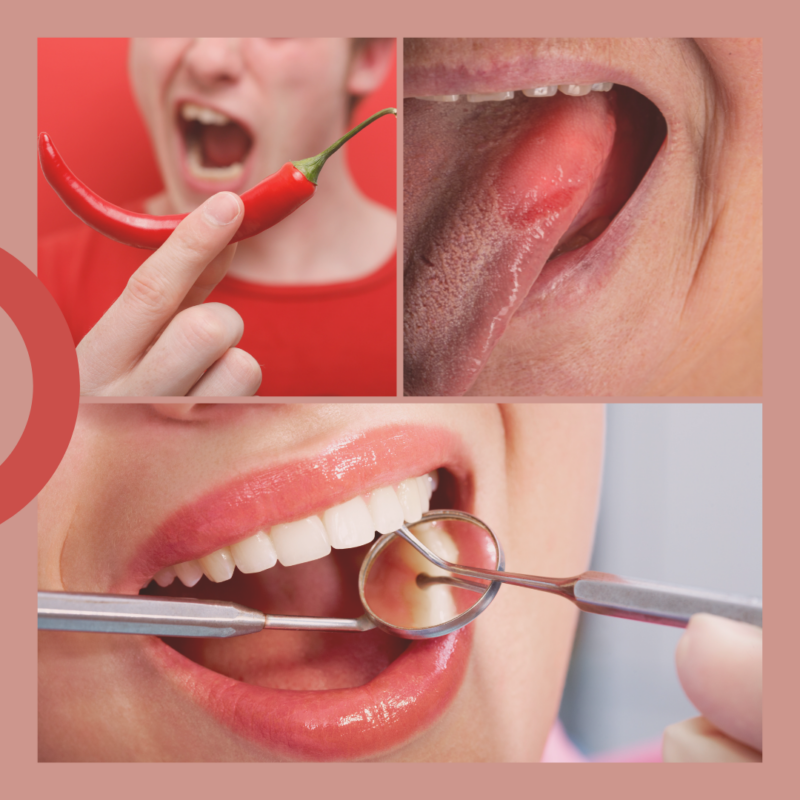
The primary symptom of BMS is a burning pain in the mouth. This pain can affect the tongue, lips, gums, palate, and even the throat. The burning sensation may be accompanied by dryness, increased thirst, a metallic or bitter taste, and changes in taste perception. Some individuals experience constant pain throughout the day, while others may notice that the pain intensifies as the day progresses and subsides at night.
Ross Hauser, MD discusses the underlying cause of burning mouth syndrome, how he uses Digital Motion X-ray to help diagnose the condition, and how treatment with Prolotherapy can resolve it. Symptoms like burning mouth and those associated with cervical spine instability can be debilitating.
If you are struggling with neck pain and neurological issues, please consider that the structural issue may be able to be found through motion scanning and resolved with regenerative treatments. Even if they are missed by the traditional methods of static MRI and nerve blocks, medications, etc.
Causes of Burning Mouth Syndrome
BMS can be classified into two types: primary and secondary. Primary BMS is not caused by an underlying medical condition and is often linked to nerve damage affecting pain and taste. Secondary BMS, on the other hand, is associated with various medical conditions and treatments, including:
- Hormonal changes, particularly in postmenopausal women
- Dry mouth due to medications or conditions like Sjögren’s syndrome
- Nutritional deficiencies, such as low levels of vitamin B or iron
- Oral infections like candidiasis
- Allergies to dental materials or foods
- Chronic habits like teeth grinding or jaw clenching
- Gastroesophageal reflux disease (GERD)
Diagnosis of Burning Mouth Syndrome
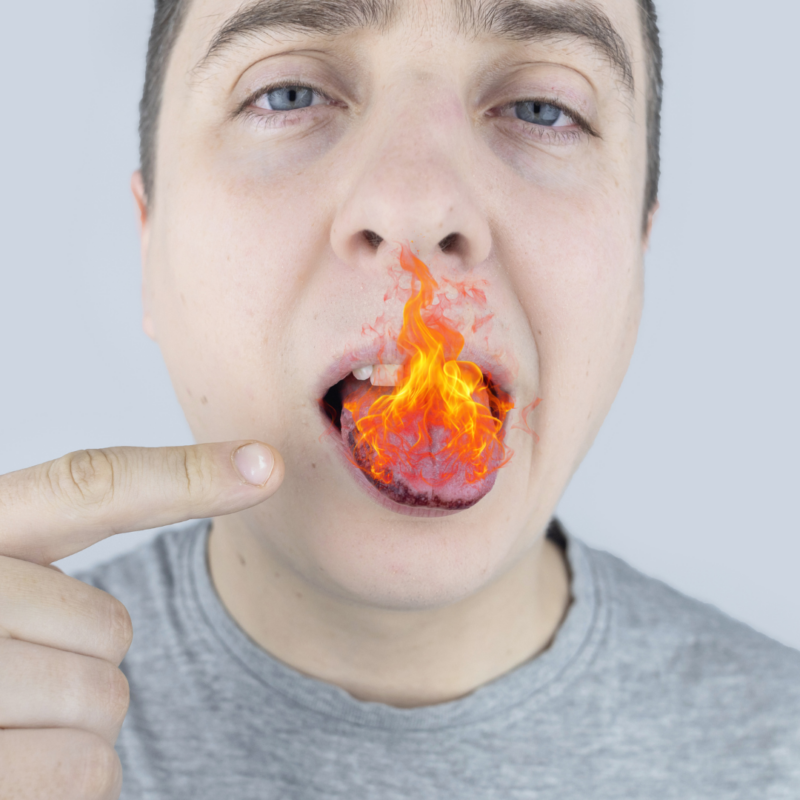
Diagnosing BMS can be challenging due to the lack of visible signs during an oral examination. Therefore, healthcare providers rely on a detailed medical history, symptom description, and various tests to rule out other conditions.
These tests may include blood tests to identify deficiencies or underlying health issues, saliva flow tests, oral swabs, and allergy tests. In some cases, a biopsy or imaging tests might be necessary to exclude other potential causes.
Treatment Options for Burning Mouth Syndrome
Treating BMS requires a tailored approach, as what works for one person might not be effective for another. For primary BMS, treatment focuses on managing symptoms. Options include:
- Medications to relieve pain, such as clonazepam or gabapentin
- Topical treatments like capsaicin, an ingredient derived from chili peppers
- Saliva substitutes for dry mouth
- Antidepressants or antiseizure medications
For secondary BMS, addressing the underlying condition can alleviate symptoms. This might involve treating infections, correcting nutritional deficiencies, adjusting medications, or managing conditions like GERD or dry mouth.
Self-Care and Management Tips
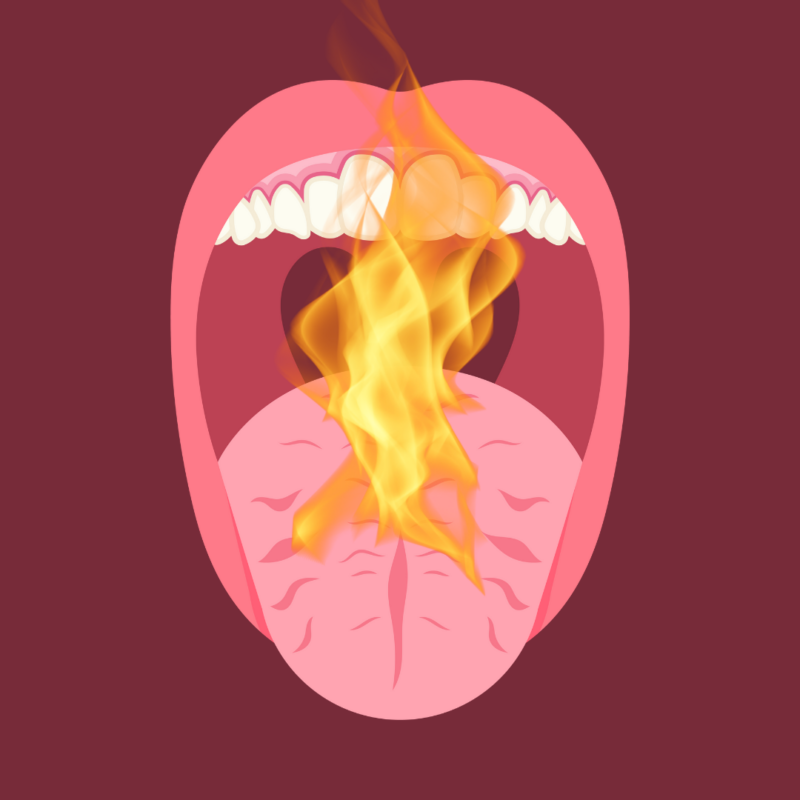
While medical treatments are essential, self-care practices can also help manage BMS symptoms. Patients are advised to:
- Stay hydrated by drinking plenty of water and sucking on ice chips
- Avoid irritants like tobacco, alcohol, spicy foods, and acidic beverages
- Use mild or flavor-free toothpaste to avoid further irritation
- Practice good oral hygiene and stress management techniques
Calculating the Cost of Treating Burning Mouth Syndrome
Treating Burning Mouth Syndrome (BMS) can involve various medical consultations, diagnostic tests, medications, and possibly therapies. Here is a detailed breakdown to help estimate the costs:
Initial Consultation
- General Practitioner Visit: $100 – $200
- Specialist Visit (Dentist, Oral Surgeon, ENT): $150 – $300
Diagnostic Tests
- Blood Tests: $50: $150
- Oral Swab Tests: $20: $100
- Salivary Flow Test: $50: $200
- Allergy Tests: $200 – $1,000 (depending on the complexity)
- Imaging Tests (MRI or CT Scan): $500: $3,000
Medications
- Pain Relievers (e.g., Clonazepam, Gabapentin): $10: $50 per month
- Topical Treatments (Capsaicin Cream, Lidocaine): $10: $30 per month
- Antidepressants (if prescribed): $10: $50 per month
- Saliva Substitutes: $10: $20 per month
- Alpha-Biopic Acid Supplements: $15: $30 per month
Follow-Up Visits
- Follow-Up with GP or Specialist: $100: $300 per visit (assuming 2–4 visits per year)
Additional Therapies
- Cognitive Behavioral Therapy (CBT): $100: $200 per session (if recommended, typically 10–20 sessions)
Estimated Total Annual Cost

Low-End Estimate
- Initial Consultation: $100 (GP) + $150 (Specialist) = $250
- Diagnostic Tests: $170
- Medications: $120 per year (average $10 per month)
- Follow-Up Visits: $200 (2 visits)
- Additional Therapies: Not included
Total Low-End Estimate: $740 per year
High-End Estimate
- Initial Consultation: $200 (GP) + $300 (Specialist) = $500
- Diagnostic Tests: $4,450
- Medications: $600 per year (average $50 per month)
- Follow-Up Visits: $1,200 (4 visits)
- Additional Therapies: $4,000 (20 sessions of CBT)
Total High-End Estimate: $10,750 per year
The Role of Mental Health
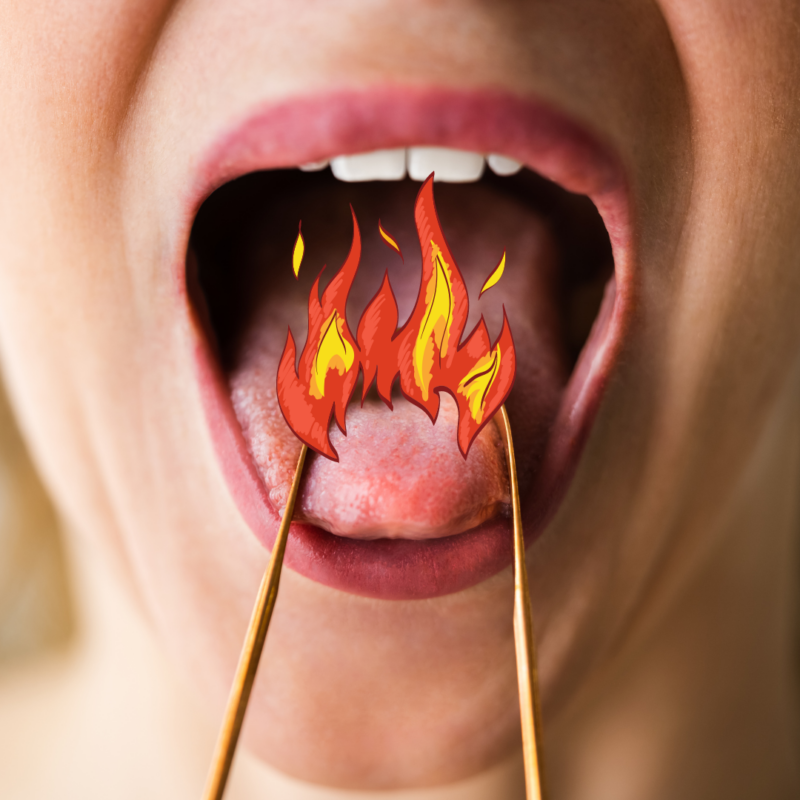
The chronic pain associated with BMS can lead to anxiety, depression, and stress. Therefore, addressing mental health is crucial in managing the condition.
Cognitive-behavioral therapy (CBT) can help patients develop coping strategies to deal with pain and improve their quality of life. Joining support groups and staying socially active can provide emotional support and reduce feelings of isolation.
Seeking Professional Help
If you suspect you have BMS, it’s essential to consult a healthcare provider, preferably starting with a dentist. They can help manage oral habits that might contribute to the condition and refer you to specialists if necessary.
Collaborating with a trusted healthcare team ensures a comprehensive approach to diagnosis and treatment.
FAQs
1. Can you be healthy again after this condition?
Yes, many individuals can achieve relief from Burning Mouth Syndrome with appropriate treatment and management. The condition may resolve on its own for some people, while others may require medical interventions and lifestyle adjustments.
2. How long will I have this condition?
Some people may experience symptoms for months or years, while others might find relief within weeks with proper treatment. Consistent medical follow-up and adherence to treatment plans can help manage and potentially reduce the duration of symptoms.
3. What is the new treatment for burning mouth syndrome?
Low-level laser therapy offers immediate pain relief for Burning Mouth Syndrome patients. A new study suggests that low-level laser therapy (PBM) offers immediate pain relief for Burning Mouth Syndrome (BMS) patients. Over 10 weeks, 30 participants experienced a significant drop in pain scores after each treatment.
4. Can vitamin D help with burning mouth syndrome?
A diet lacking or low in vitamin D will cause burning mouth syndrome. Symptoms of this condition include a burning mouth sensation, a metallic, or bitter taste in the mouth, and dry mouth.
Conclusion
Living with BMS is really tough. The constant pain in your mouth can make it hard to eat, talk, and enjoy life. Feeling alone with this condition is the worst. It’s important to remember that you don’t have to deal with BMS on your own – there are people who want to help. Don’t be afraid to go see your doctor or dentist if you think you have it. They may run some tests to figure out exactly what’s going on.
There are also therapies and support groups that could help too. Just talking with others facing the same struggles makes a big difference. And there are treatments to help reduce the pain. Having doctors, friends, and family behind you is significant when fighting Burning Mouth Syndrome every day.
With the right treatment plan and by taking good care of your mental health along the way, you don’t have to let BMS take over your life. There is hope to feel better.

